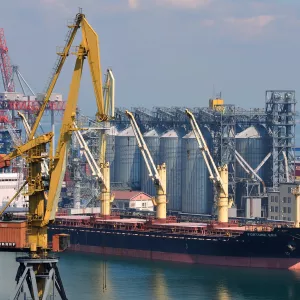The Russia-Ukraine war’s impact on global food markets: A historical perspective
BY JOSEPH GLAUBER, DAVID LABORDE, AND JOHAN SWINNEN The Russia-Ukraine war has focused global attention on the key economic roles of those countries play as major exporters of agricultural commodities. Over 2019-2021, they accounted for 12% of global agricultural trade on a kilocalorie basis, with a combined market share of 34% for wheat, 26% for barley, 17% for maize, and 75% for

The Russia-Ukraine war’s impact on global food markets: A historical perspective
The Russia-Ukraine war has focused global attention on the key economic roles of those countries play as major exporters of agricultural commodities. Over 2019-2021, they accounted for 12% of global agricultural trade on a kilocalorie basis, with a combined market share of 34% for wheat, 26% for barley, 17% for maize, and 75% for sunflower oil. The war has scrambled this picture, with Ukraine’s exports falling dramatically, and Russia’s falling, then recovering.
While the Black Sea region has historically been a major grain producer, its emergence as a major world exporting region is a relatively recent phenomenon. From the 1970s until the early 2000s—the decades immediately before and after the collapse of the Soviet Union—Russia and Ukraine were net grain importers. This post examines how and why Russia and Ukraine became such important factors in 21st century global food markets—and thus why the war poses a continuing threat to global food security.

